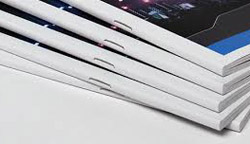
This is the least expensive binding option. There are 2 to 3 staples in the spine.
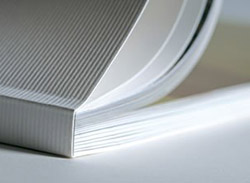
This is also referred to as a "soft cover" book, or a paper-back book. The inside pages are glued to the spine of the cover. The spine has a squared off look.
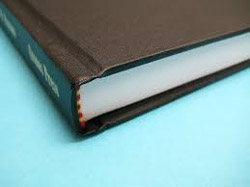
This is often referred to as a "hard cover" book because the cover is made of a much thicker, harder material than books that are saddle stitched or perfect bound. Case bound books are usually what text books are made of, or most books that you would see at a library.
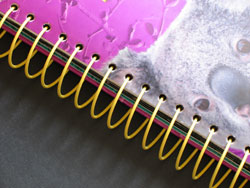
This is often referred to as a "spiral bound" book. There are holes drilled along the spine, and the single wire/spiral is threaded through the holes. When books with this type of binding are opened up, they lay flat which is highly desirable for cook books and manuals.
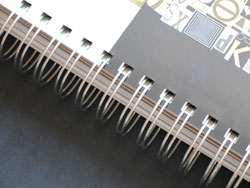
This is similar to a wire bound book, except the binding material is made of 2 wires or plastic for a different look. However, the function is the same as a wire bound book because it also lays flat when the book is open.
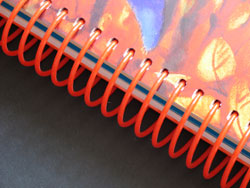
This is the same as Wire Bound, except the material is plastic instead of metal. This is a cheaper option, and therefore is preferred by most of our clients.
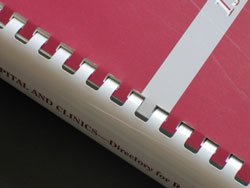
This binding method allows the book to lay flat when open, but has a much different look than the Wire, Double-O, and Plastic Coil. The width between each of the holes in the spine is significantly wider, and the spine is solid plastic, as you can see from the illustration.